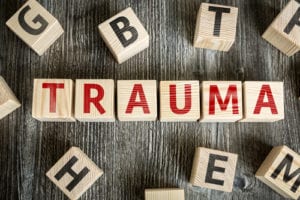Post traumatic stress disorder and symptoms of trauma aren’t always obvious. If you’re misinformed about PTSD, you could be saying harmful things to someone who is struggling and needs your support.
- You need to let go of the past: that’s the peculiar thing about living with post-traumatic stress disorder. Despite all desperate attempts, often including substance abuse, it is impossible to make the past go away. People who are struggling with the symptoms of post traumatic stress disorder want nothing more badly than to simply let go of the past that haunts them. Having flashbacks, hallucinations, uncomfortable and intrusive thoughts about the past is common and out of their control. It isn’t as simple as letting go of the past but working through a complicated alteration in brain chemistry to help the brain process the past. Trauma isn’t holding onto the past. The brain develops reactions to trauma when the past was too intense to process at the time. Going into and processing the fact usually means facing memories of events or circumstances that were too horrifying for the brain to process. People who are living with PTSD aren’t weak because they “hold onto” the past. They’re incredibly strong for surviving the past.
- You can’t have PTSD because you haven’t been through anything: The definition of trauma is rapidly increasing in variety. When trauma first became a clinical conversation, it was reserved for veterans of war who were having a difficult time processing and living with what they saw on the battlefield. Today, it is understood that any kind of circumstances which are scary and out of control can be traumatizing and create symptoms of post traumatic stress in the brain. Verbal abuse, emotional abuse, abandonment, neglect, rejection, humiliation, sudden loss- all of these experience can be traumatic on some level.
- You don’t act like someone who has PTSD: What does PTSD look like? Statistically, most people will experience trauma of some kind in their life, even if it is just third person trauma which is related to them by someone else. Trauma doesn’t always result in the full development of PTSD, including the hallucinations, flashbacks, and severe mental disturbances you hear about in extreme cases. Trauma might be so subtle that someone living with trauma doesn’t even know that they are experiencing trauma. Depression, anxiety, a tendency toward substance abuse, and other behaviors could be attributed to untreated trauma. There is no “acting” like someone who has PTSD because there is a broad spectrum of symptoms and side effects.
Avalon By The Sea is one of Southern California’s only certified primary mental health treatment facilities. Our beautiful seaside estate on the iconic Malibu coast is the serene home you or your loved one needs to fully recovery from PTSD and any dual diagnosis substance use disorder issues. For a confidential assessment and more information on how our trusted programs provide trusted results, call us today: 888-958-7511












